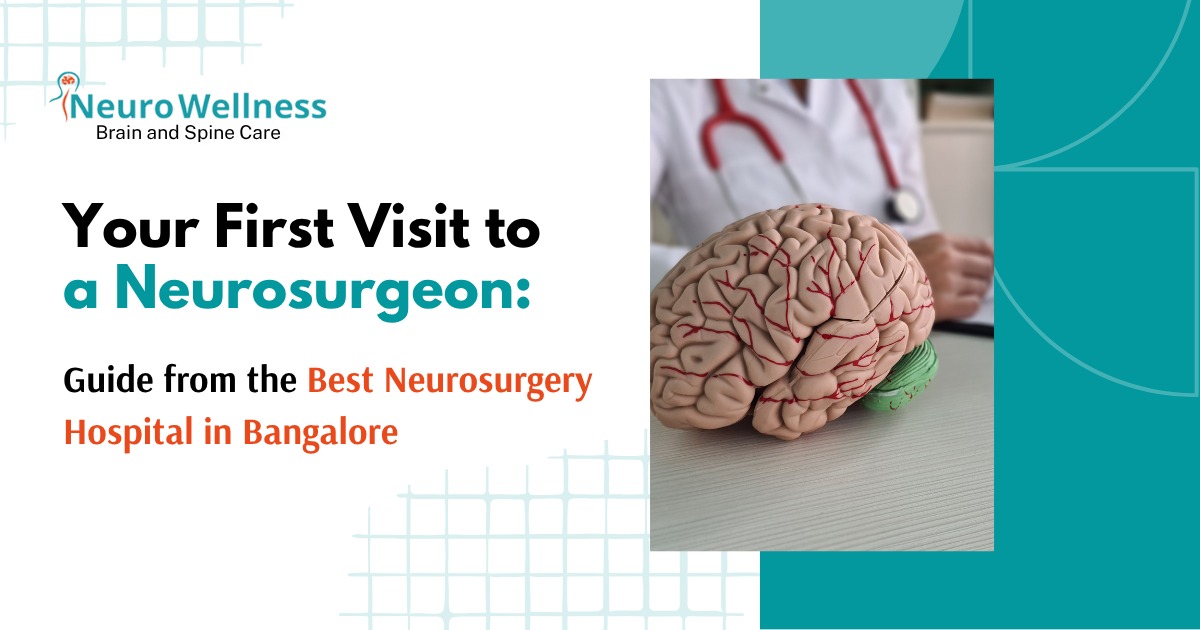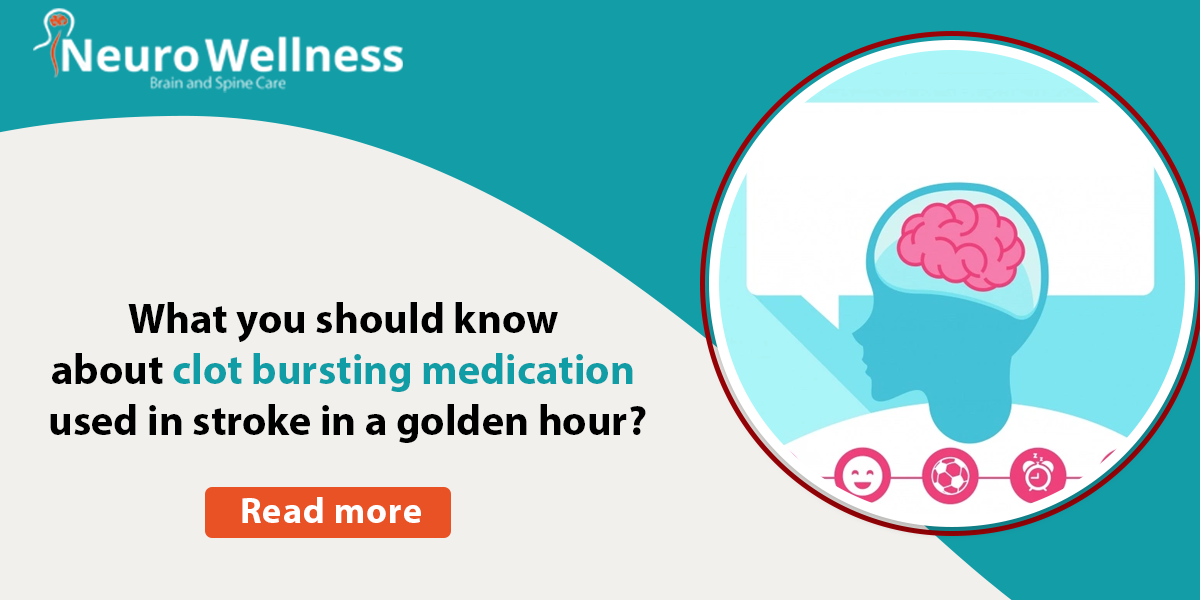Visiting a neurosurgeon for the first time can naturally raise many questions and concerns. Whether you’re dealing with persistent headaches, spine issues, nerve pain, or recovering from trauma, a neurosurgeon plays a key role in guiding your treatment.
“A first consultation is not just about diagnosis, it’s about reassuring patients and guiding them with clarity,” says Dr. Ganesh Veerabhadraiah, Senior Neurosurgeon with 20+ years’ experience.
Your first visit to a neurosurgeon is an important step towards understanding your condition and exploring advanced care options. Being prepared ensures that you get the most value from this consultation and clarity on the path ahead.
If you’re consulting a Neurosurgeon in Electronic City Bengaluru, you’re in expert hands with Dr. Ganesh Veerabhadraiah is widely regarded for his expertise in neurosurgery at Kauvery Hospital. His vast experience in brain and spine surgeries makes your first visit both informative and reassuring.
During this initial appointment, your neurosurgeon will assess your medical history, conduct necessary examinations, and discuss a personalized treatment approach — whether surgical or non-surgical. This interaction forms the foundation of a treatment plan tailored to your needs.
In this comprehensive guide, we’ll walk you through what to expect during your first visit to a neurosurgeon, how to prepare, and why choosing a reputable expert like Dr. Ganesh Veerabhadraiah can make all the difference in your neurological health journey.

Dr. Ganesh Veerabhadraiah
Consultant – Neurosurgeon, Neurointerventional Surgery, Spine Surgeon (Neuro)
23+ Years Experience Overall (17+ years as Neuro Specialist)
Available for Consultation: Jayanagar 9th Block & Kauvery Hospital, Electronic City
When Should You See a Neurosurgeon?
1. Persistent or Severe Headaches
If you’re experiencing frequent, worsening, or unusual headaches — especially those that disrupt daily life — it’s time to consult a neurosurgeon. Certain headaches may indicate underlying brain or nerve issues that need specialist evaluation.
2. Spine and Back Pain That Doesn’t Improve
When chronic back pain, neck pain, or sciatica persists despite treatment, a brain and spine surgeon can assess whether structural problems like herniated discs, spinal stenosis, or nerve compression require advanced care.
3. Symptoms of Nerve Damage
Signs like tingling, numbness, muscle weakness, or loss of coordination suggest nerve dysfunction. A neurological surgery specialist can diagnose and treat conditions affecting the brain, spine, or peripheral nerves.
4. Traumatic Brain or Spine Injury
Following head injuries or spinal trauma, consulting a neurosurgeon ensures timely management to prevent long-term complications. Immediate evaluation is crucial for optimal recovery.
5. Diagnosed Brain or Spine Tumors
If imaging reveals a tumor in your brain or spinal cord, a neurosurgeon will guide you through surgical and non-surgical treatment options. Expertise is essential to manage such complex conditions safely.
6. Seizures or Neurological Changes
New or worsening seizures, sudden vision changes, balance problems, or unexplained weakness warrant a neurosurgical consultation. Early diagnosis can prevent disease progression.
7. When Advised by Your Physician
Often, your primary doctor or neurologist will refer you to a neurosurgeon when they identify symptoms needing surgical evaluation. Trust this guidance — early specialist input improves outcomes.
1. WHO (Stroke & Neuro Care Standards)
According to the World Health Organization (WHO), neurological disorders are among the leading causes of disability worldwide, making early consultation with a neurosurgeon crucial for better patient outcomes
2. Mayo Clinic (First Consultation Guidance)
The Mayo Clinic notes that during a first neurosurgeon consultation, patients can expect a detailed medical history review, neurological exam, and often imaging tests such as MRI or CT scans to form an accurate diagnosis.
3. NCBI/NIH (Neurosurgery Best Practices)
Research published on NCBI (National Center for Biotechnology Information) emphasizes that early neurosurgical evaluation improves long-term outcomes, especially for conditions like spine disorders, brain tumors, and stroke management.
Preparing for Your First Visit
1. Gather Relevant Medical Records
For your first visit to a neurosurgeon, bring all previous medical records. This includes:
• MRI, CT scans, or X-rays
• Blood test results
• Nerve conduction studies (for nerve damage treatment)
• Reports from prior consultations or surgeries
2. Create a List of Symptoms
Note down all symptoms you’re experiencing:
• When they started
• How often they occur
• What worsens or improves them
This clarity helps your spine surgeon in Bengaluru or brain specialist understand the full picture.
3. Prepare a List of Questions
Prepare a list of important questions you want to discuss during your consultation. Examples include:
• What is causing my symptoms?
• What treatment options do I have?
• Will I need surgery or is there a non-surgical option?
• What is the expected recovery time?
This ensures you leave the consultation with a clear understanding of your condition and next steps.
4. Arrange for Support if Needed
Having a trusted family member or friend with you can be helpful, especially during detailed discussions about surgery. They can help take notes and offer emotional support.
5. Know What to Expect During the Appointment
During your visit, your neurosurgeon will:
• Review your medical history and imaging
• Perform a physical and neurological exam
• Explain possible diagnoses
• Discuss further tests or treatment options (which may include nerve damage treatment or advanced spine procedures)
What Happens During the Consultation
1. Medical History Review
Your neurosurgeon will review your complete medical history and previous test results. This helps understand underlying factors affecting your brain, spine, or nerves.
2. Neurological Examination
Next, a physical and neurological exam checks:
• Reflexes
• Muscle strength
• Coordination
• Sensory responses
This helps your brain and spine surgeon identify affected areas.
3. Imaging Review
Your neurosurgeon will analyze MRI, CT scans, or X-rays. For cases like skull base surgery or spine disorders, these images guide diagnosis and treatment planning.
4. Discussion of Treatment Options
After diagnosis, your doctor will explain:
• Whether surgery is required
• Non-surgical options (if suitable)
• Risks and benefits of treatments
Patients seeking the best neurosurgeon in Bengaluru for brain surgery often appreciate this clarity.
5. Addressing Questions
You will be given the opportunity to seek clarifications and address any concerns you may have. Your neurosurgeon will also outline the next steps, follow-up schedule, and recovery expectations.
After Your Consultation: Next Steps
1. Understand Your Treatment Plan
Once the consultation is complete, your specialist will explain the recommended course of treatment and next steps. This may include lifestyle changes, medications, physiotherapy, or surgical options like nerve damage treatment or spine surgery.
2. Schedule Additional Tests (If Required)
You may be advised to undergo further diagnostic tests for an accurate diagnosis — such as advanced MRI, CT angiography, or nerve conduction studies.
3. Book a Follow-Up Appointment
Whether you proceed with surgery or conservative management, it’s essential to schedule a follow-up visit. Regular monitoring ensures optimal recovery and timely adjustments to your treatment.
4. Stay Connected with Your Care Team
The care team, along with your neurosurgeon, will continue to provide support throughout your treatment journey. Don’t hesitate to reach out with questions or concerns between visits.
5. Take an Informed Step Forward
If you’re ready to take the next step, you can book an appointment with a neurosurgeon like Dr. Ganesh Veerabhadraiah at Kauvery Hospital, Bengaluru. Timely care can make all the difference in your neurological health journey.
Conclusion
Visiting a neurosurgeon can provide much-needed clarity and direction when you’re facing complex brain, spine, or nerve issues. Being prepared for your first visit ensures you get the answers and expert guidance you deserve.
If you are searching for a trusted neurosurgeon near me or the Best Spine Doctor in Electronic City, Dr. Ganesh Veerabhadraiah at Kauvery Hospital, Electronic City Bengaluru, offers world-class expertise and compassionate care. From advanced brain and spine surgeries to personalized nerve damage treatments, you are in expert hands.
Ready to consult a trusted neurosurgeon?
FAQs
1.What can you expect at your initial visit to a neurological specialist?
At your initial appointment, the specialist will examine your past medical records, perform a neurological assessment, and evaluate any imaging or diagnostic reports.They will then discuss possible diagnoses and recommend a personalized treatment plan.
2. How do I prepare for a neurosurgery consultation?
Before your appointment, gather all relevant medical records (MRI, CT scans), write down your symptoms, and prepare a list of questions. This helps your neurosurgeon near me provide accurate advice and treatment options.
3. Is it necessary to consult a neurosurgeon for back pain?
If your back pain is chronic, worsening, or associated with numbness or weakness, it is wise to consult a neurosurgeon online or in person. They can evaluate whether spine-related issues, such as herniated discs or nerve compression, require specialized care.
4. What is the typical duration of a neurosurgical consultation?
A typical neurosurgery consultation lasts between 30 to 45 minutes. Complex cases or those involving surgery discussions may require longer, especially when meeting an experienced specialist like Dr. Ganesh Veerabhadraiah.
5. What questions should I ask my neurosurgeon?
Key questions include:
• What is causing my symptoms?
• What are my treatment options?
• Is surgery required, and what are its risks?
• What is the expected recovery process?
• How can I manage my condition in daily life?




